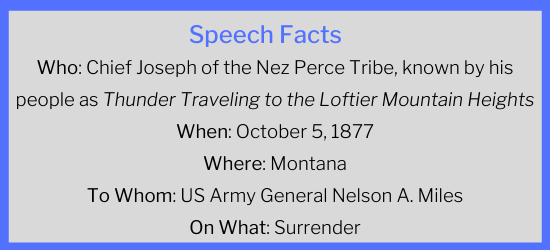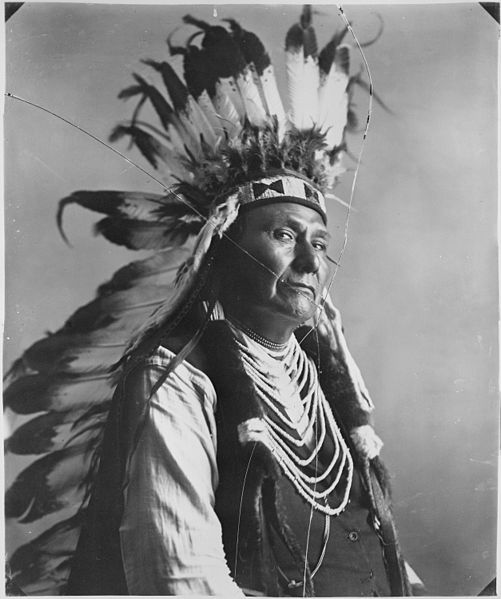
“I am tired of fighting. Our chiefs are killed… It is cold, and we have no blankets; the little children are freezing to death. My people, some of them, have run away to the hills, and have no blankets, no food. No one knows where they are- perhaps freezing to death. I want to have time to look for my children, and see how many of them I can find. Maybe I shall find them among the dead. Hear me, my chiefs! I am tired; my heart is sick and sad. From where the sun now stands I will fight no more forever.”
How can one not be deeply moved? We’ve all felt exhaustion, despair and sorrow. But nothing can compare to the misery that this statement renders so palpable and heart wrenching.
War, no matter who starts it, no matter who’s in the right, always ends this way for many. The same image comes to mind no matter what the war, and when or where it took place. It’s an image of people starving and freezing to death, family members looking for one another, exhausted people walking listlessly in a landscape of destruction.
Over the centuries up to the present day, millions of warriors and civilians have experienced war. There must have been a moment when most have thought, or uttered, the equivalent of “From where the sun now stands I will fight no more forever.” I doubt, though, that anyone has made this “never again” pledge so poetically, so beautifully.

Those of us who have not experienced it know about the misery of war and its aftermath, as war has always been a preferred subject matter of any era’s media. Before photography and video, there were drawings, paintings, theatrical representations, epics, and all manner of written and oral accounts.
Now, has the imagery of war’s misery led to a decrease in warfare? One would think so. In fact, the data show that deaths resulting from state-based violent conflicts have decreased over the past decades (see Uppsala Conflict Data Program).
This short post is not an attempt to present the causes for this decline. There are organizations and scholars fully devoted to this. (One such scholar is Steven Pinker, whose 800-page book The Better Angels of Our Nature gives possible reasons for the drop.)
However, I do believe that, in general, the imagery of war is not what has moved the needle. On the one hand, many people, perhaps a majority, think that violence is actually on the rise, yet they are not doing much about it. On the other, despite the vivid descriptions and ever more realistic images, we are often indifferent to other people’s suffering due to ongoing wars.
Frequently, we just accept these war. Sometimes, we actually encourage them – especially those who, like me, have no direct experience of war.
All speeches in this series are compiled in the book Lend Me Your Ears, Great Speeches in History, by William Safire

